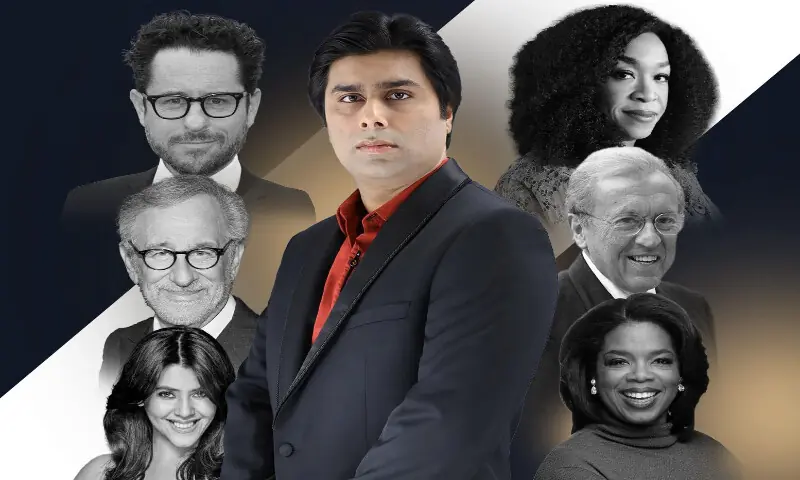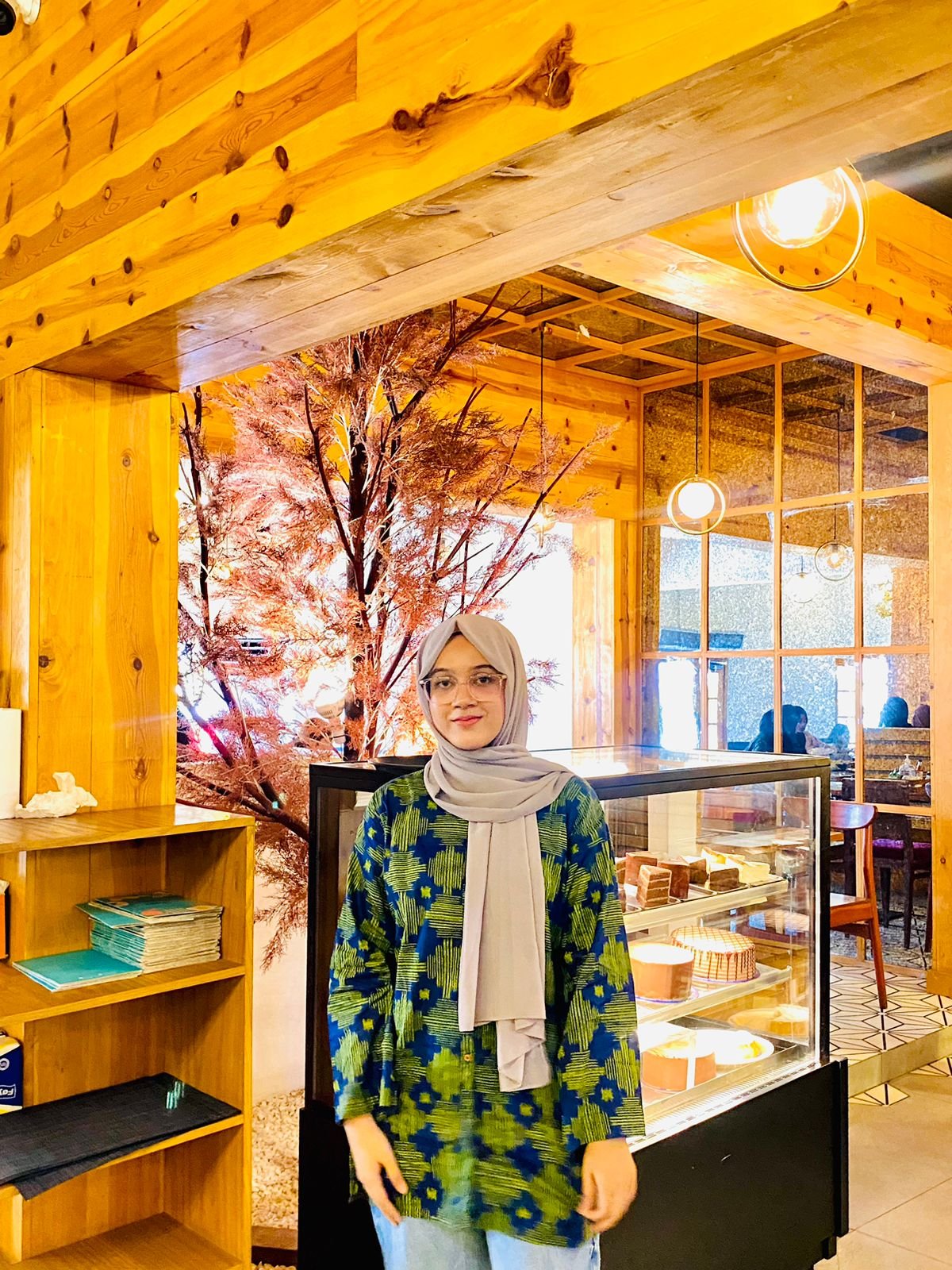Aliza: It’s a pleasure to have you, and would lyou ike to start with a brief introduction of yourself?
Dr Umair: First of all, thank you so much for inviting me and having me on the advisory board. I want to thank Saadeqa Khan; she’s doing wonderful work, and obviously, Scientia is a wonderful organization. I think it’s one of the rare voices that speaks reason, speaking for public understanding of science — and Scientia is one of those; it’s an honor to interact with your team.
By training and qualification, I’m a medical doctor. I completed my MBBS from Sindh Medical College in Karachi, with my specialization in forensic medicine. Forensic medicine is one of the rarer specialties in medicine, where we look at the legal aspects of medicine — how medicine can be helpful in legal matters to get justice. DNA fingerprinting is one of the famous parts of it; we also do many other things, but DNA has had a celebrity status in recent years.
After completing my fellowship from Dow University of Health Sciences in Forensic Medicine, I went to the USA and appeared in an exam in a similar field — the American Board of Medicolegal Death Investigators. That examination is required for conducting a death investigation. I attempted and was the first Person who pass it while holding a Pakistani passport.
After 2014, I worked with organizations such as GIZ and the British High Commission, and then my focus shifted to the media industry. I started my own show called Kadi Se Hathkadi — it was the first practical forensic-science show in the Pakistani media industry. I was very impressed with shows like Dr. G: Medical Examiner and American forensic programs I watched, which inspired me to create a Pakistani version that could both entertain and educate.
The show was shot in a crime lab set — we developed a sample crime lab — and that is something I can speak more about when the question arises. Currently, I lead a TV channel called Metro One News, serving as the channel’s President, and I also manage a digital media platform called Voice of Sindh. We publish magazines, write books, and run three websites in three different languages, and I lead those efforts as well.

Aliza: Honestly, I’d like to start with a little bit about your journey from studying medicine at Sindh Medical College and how your fellowship at Dow University of Health Sciences shaped your career path.
Dr Umair: As usual, there were a few options — engineering, medicine, chartered accountancy — people usually choose the “best” ones. I got admitted to a medical college, completed my medical degree, and then completed the fellowship. I enrolled in the Department of Forensic Medicine at Dow University of Health Sciences and completed the program (a four-year degree program that I completed in five years).
Aliza: Was there a defining moment or influence that inspired you to specialize in forensic sciences?
Dr Umair: I was always impressed with crime-scene work: Sherlock Holmes-style solving of mysteries. That inspired me. Also, there was less competition in the field, which I later regretted a little when I ended up moving to media — medicine didn’t always give me enough workspace to grow. Forensic medicine taught me about the reality of life and death; doing many post-mortems gives you a close view of how precious human life is.
Aliza: From your perspective, what are the biggest challenges facing forensic investigation in Pakistan today?
Dr Haroon: The major issues are resources and training. There are fewer trained experts and a limited scope for career growth. In forensics, you mostly end up in lecturership/academia, with little practical forensic-science infrastructure. There is no proper, functional forensic-science lab in many areas yet; although the Punjab Forensic Science Agency exists, practical facilities are still limited. I was among those writing proposals around 2012–13 to build such capabilities.
Aliza: You became the first Pakistani Diplomate of the American Board of Medicolegal Death Investigators — what did that achievement mean to you personally and professionally?
Dr Umair: It was important — it helped my career a lot. Passing the exam allowed me to learn how the system works in developed countries — how they conduct modern forensic investigations — and I brought that knowledge back. After passing the exam, I was interviewed in a Pakistani newspaper in America. This article was then noticed in the country, and I was invited by the National Defense University (NDU) for national security workshops. The recognition opened opportunities and was a rewarding step in my career.
Aliza: You launched Pakistan’s first forensic-science investigative TV series — what inspired that idea?
Dr Umair: I used to watch US forensic programs and thought, “Why not have a Pakistani version?” The idea was to educate the public about forensic science and increase awareness, and I wrote a concept paper and pitched it. Although the project had delays, Express News later agreed to broadcast it, and we developed the show there. The inspiration was shows such as Forensic Files, CSI, and Dr. G: Medical Examiner.
Aliza: How did you manage the scripts for the series, and who helped make complex forensic ideas understandable for TV audiences?
Dr Umair: There are two aspects to this storytelling: one is the scientific expert (my role), and the other is translating the ideas into language that the general audience can understand. I worked with a writer — a good friend who is a poet and lecturer — who could take the forensic concept and craft it into a strong, comprehensible story.
For example, the pilot had an unidentified dead body found at sea; forensic findings showed the person actually died in fresh water, not saltwater, which guided the investigation. Another episode involved a case where a steroid shot had been replaced by insulin, causing a death in the ring. We aimed to combine strong storytelling with accurate forensic detail.
Aliza: You recently received an award from the Karachi Bar Association for your contribution to scientific awareness through the media. You’ve spoken about justice and corruption in Pakistan. What challenges did you face producing such content, and how did you overcome them?
Dr Umair: It’s not easy in developing countries. We often had to “hide” the truth behind fiction — using fictional stories to convey real messages and to educate without directly confronting sensitive matters. Fiction becomes a protective “loophole” to speak truths. That approach let us address difficult topics while avoiding direct conflict.
Aliza: At Scientia Pakistan, we’ve published articles on forensic science and trained young writers — how can these writers move into television/film?
Dr Umair: Fewer programs are addressing forensic or scientific aspects on TV. Convincing producers to take on science-focused programs is difficult because of TRP (ratings) concerns. You need to build audience appetite and maintain quality, so viewers choose to watch.
Documentary is a powerful medium and is an excellent entry point — short documentaries and docu-series can be very effective. Use digital platforms, like Voice of Sindh and other independent channels, to produce high-quality content and then push it toward broadcasters and festivals. Also, send productions to festivals — we don’t have a strong culture of submitting to international festivals, and that needs to change.
Aliza: You are an elected member of the International Academy of Television Arts & Sciences (IATAS) — the only Pakistani member. How does that feel, and what responsibilities come with that role?
Dr Umair: Membership in the International Academy is a big honor — it’s like the Oscars for television (the Emmy is the major TV award). IATAS promotes and supports quality production worldwide. As a member, we review and judge content, rate productions, and help elevate global standards. I hope to bring more Pakistani members on board and to submit Pakistani content to the International Emmys. Being part of the Academy allows meeting leading figures in world television and advocating for Pakistani work internationally.
Aliza: What advice would you give to Pakistani creators aspiring to reach platforms like the Emmys? What makes a story globally resonant yet authentically Pakistani?
Dr Umair: Be genuine, produce high quality, and focus on the human factor. Stories must rise above ethnicity and local divisions to touch universal human emotions. Also, send your work to festivals and competitions — we must build a culture of submitting productions for international exposure.
More From the Author: Is Artificial Intelligence Our Ally or an Enemy?

Syeda Aliza Waqar is a Bachelor’s student majoring in Computational Math at the University of Karachi. Currently serving as a Science Writing Intern at Scientia Pakistan along with her services in the corporate world, her areas of expertise encompass Computer Science, Artificial Intelligence, Applied Mathematics, and Astrophysics. Aliza aspires to leverage her passion for science communication through her contributions to Scientia Magazine Pakistan.

